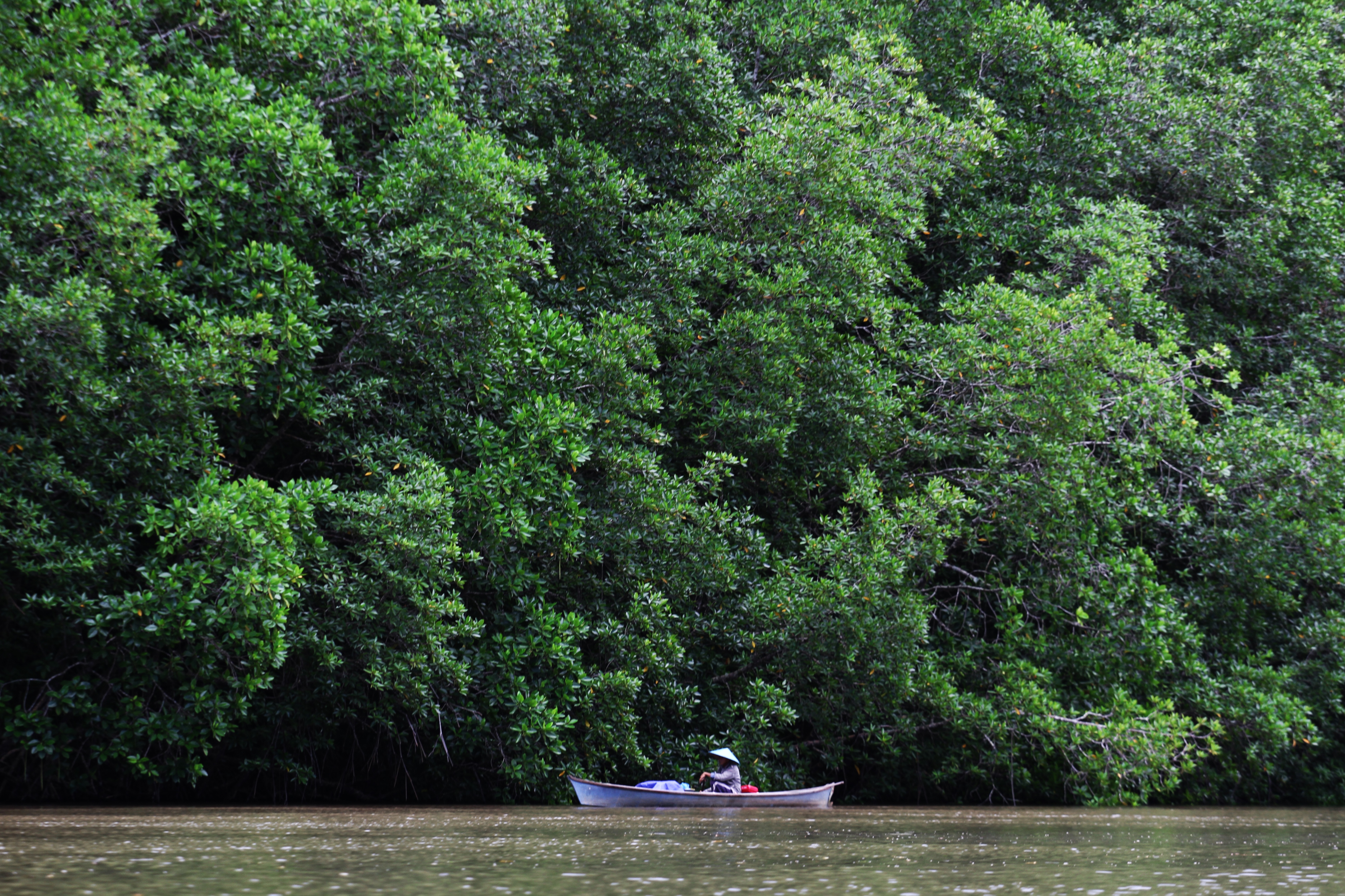

A key component of our sustainable fisheries program in our coastal site is the ‘participatory fisheries management’ intervention through which we co-implement periodic river closures. We designed this intervention in light of communities’ worry of collapse in fish, crab, and shrimp populations that had directly led to reduced household income. As this decline in fish stocks stemmed from lack of clear fishing grounds, inter-and intra-village conflict, and high rates of migrant fishermen from other areas entering the fishing grounds, we proposed the idea of a 3-month long river closure. Mud crabs were chosen as the species that would be targeted as part of the river closures particularly because they were among the most valuable commodities to small-scale fishermen and also a fast-growing species.
Before a river is closed to fishing, community fishermen use a map of their village's rivers to choose the location of the river that will be closed and decide the timing of the closure. The only thing they do not choose is the length of the closure, which has been chosen for 3-months in consultation with mud-crab experts. Once the rivers are opened to fishing, the small-scale fishermen are able to reap the benefits through the increased size of crabs and higher yields.
An enabling factor for this activity is the monitoring of rivers during closures to deter and prohibit people from fishing. Another factor that can increase the success of the closures is to choose a location that is a known hotspot for mudcrabs (or the species targeted by the closure).
Periodic closures offer an “easy to understand” and “easy to implement” management technique for coastal communities that can deliver quick returns. Also, we found that social and economic interventions at the village level are essential to incentivizing the participation of fisher communities in such management techniques. In case of unintended benefits, mud-crab fishermen explained that it helped them to “secure” their fishing grounds from migrant fishermen who come from other villages to catch fish in rivers surrounding their villages. Another benefit cited by fishermen were related to their time management. During Periodic Closures, fishermen were able to focus their time on daily activities away from mud crab fishing and concentrate on developing other sources of income for their families. Whereas previously they would go out to catch mud crabs every day which was actually a gamble for them, as they were not sure if they would catch enough crabs to at least pay for costs related to fuel for their boats.